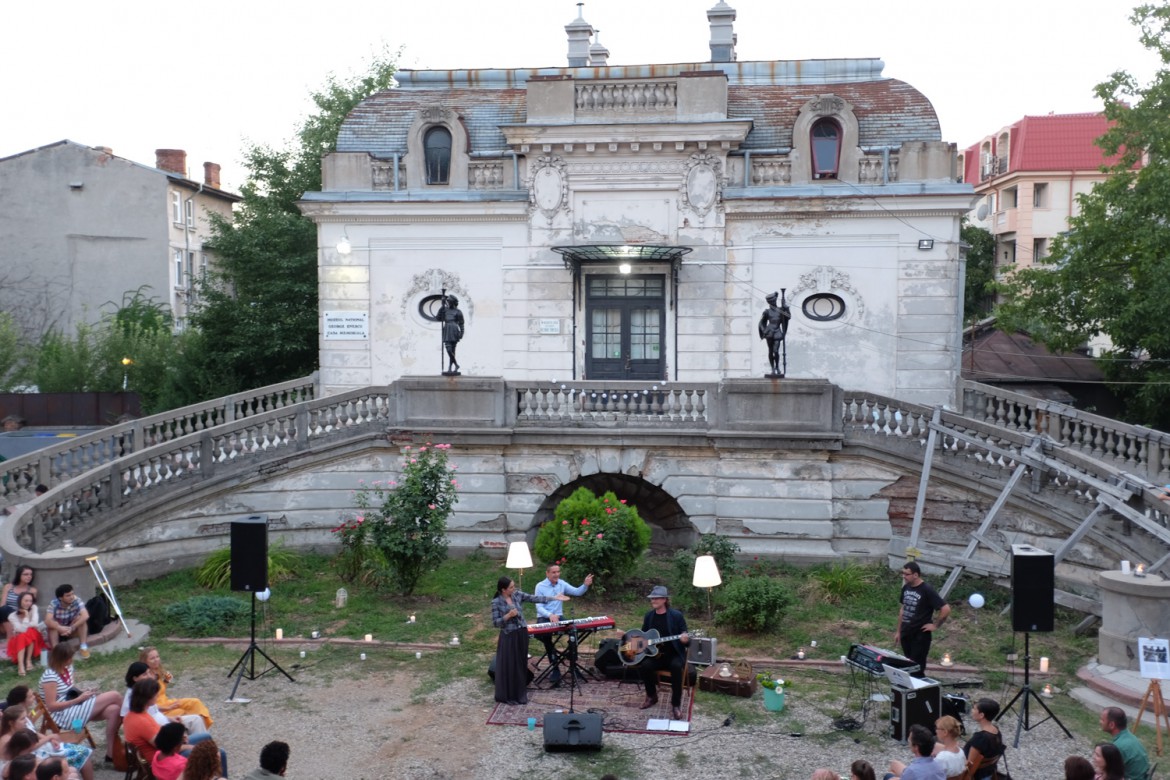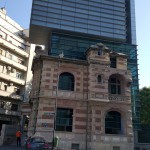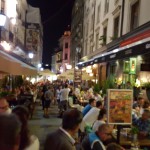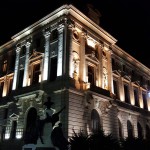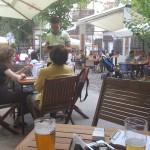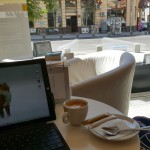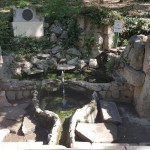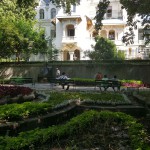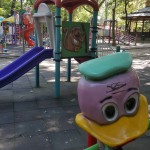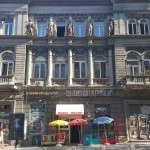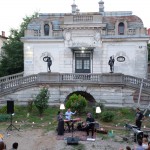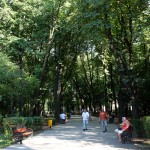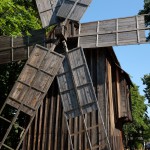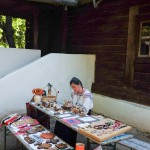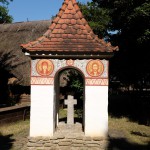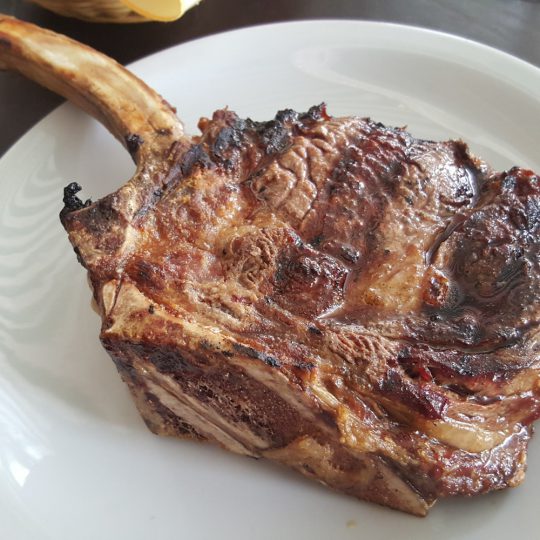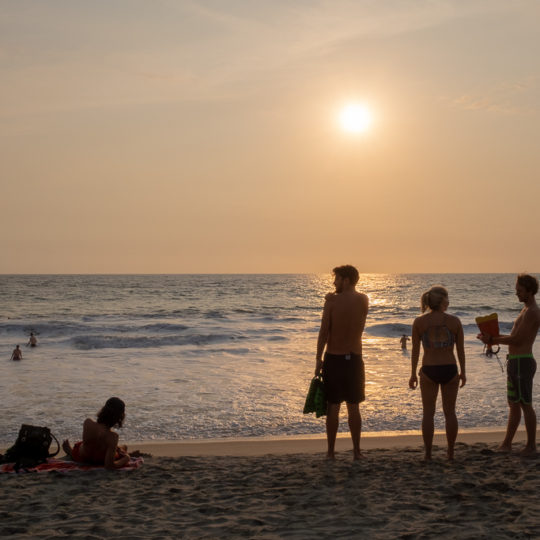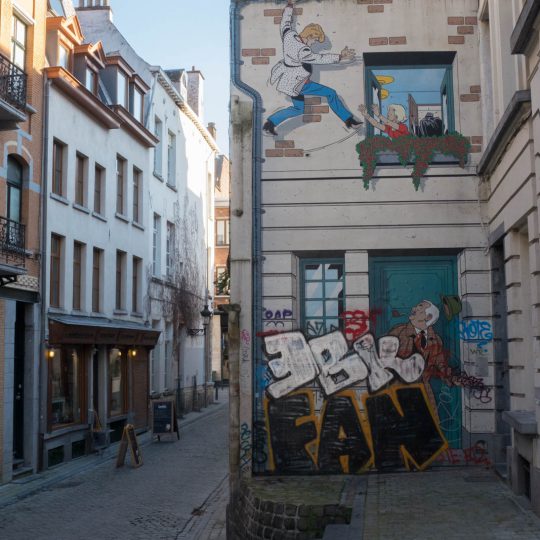After hopping back to the states and taking care of business I needed to reconnoiter with Europe. I decided to take the scenic route to Croatia, where I’ll be spending the rest of August, stopping in a few places along the way. Bucharest, Romania was my first stop.
I stayed at the Premier Hotel and Spa for two nights with the thought of trying to attack jet-lag with spa treatments and sleep. It mostly worked as I slept for at least eight hours each night. The deep tissue massage I had though… left some marks (see photo, below). I spent a night in the center of town at Hotel Cismigiu – a fabulous apartment replete with a living room, huge bathroom and even kitchenette and dining table for $100. On the first night I was here I attended a charity jazz concert surrounded by a dilapidated, national museum.
Bucharest is a wonderful city to visit. It is very inexpensive (cap fares especially) and accessible to explore. The people are very friendly and courteous. For travelers Bucharest offers an interesting culture. It is the 6th largest city in the European Union. You’d never know though because it (surprisingly) isn’t all touristed-out. While here I’ve come to appreciate (and now prefer!) the benefits of non-cosmopolitan destinations! Very much the opposite of Copenhagen, Bucharest and Romania in general, offers an ancient, extant culture unsullied by foreign conglomeration. In a European capital this is fascinating.
Also fascinating are the local Romani ethnicity – aka Gypsies. They are universally despised and derided — what I was able to garner from the locals I talked to is that they are seen as supported by the government welfare system. They are seen begging and being lazy (so I was told) and never working – being paid to have babies. I was continually on the look out for gypsies but couldn’t really find any. I asked how I could tell someone was a gypsy — “you can tell — they look different”. They really didn’t look that different to me. They looked like Italians or people on the MTV show Jersey Shore. Then I realized that as an American I am used to everyone looking sort of different from one another. In Romania, the extant ethnicity is part of their culture so it was interesting to perceive. In America we destroyed our own. That’s probably why we go to such lengths to welcome immigrants – we are an immigrant culture. In America we are so vigilant to disparage any threat to pluralism or heterogeneity — it was nice to remove my own cultural veil and see things through the eyes of a Romanian.
I never met a Gypsy. I saw a few while walking around the city. They didn’t seem evil or lazy, but what do I know? I told the people I talked to that in America we have people like gypsies (people who milk social welfare) but we also are (hilariously) politically correct so that we pretend that they do not exist. Because that would be racist or culturally insensitive — a crime worse than increasing the national deficit. They understood and replied “here in Romania we can’t ignore gypsies. They are everywhere.” Even though Romania is part of EU the unfortunate economic status of the country has delayed the adoption of the Euro as the official currency though in a few years they might qualify. It seemed to me that the gypsies were probably seen as making the economic situation worse and inhibiting progress. That sucks.
Bucharest is one of the few places I want to return to. In fact I can see myself living here for a few months. It’s very affordable, large (which means there’s more to do and explore) and part of a country that to me is still very mysterious — so I want to learn more about it. The culture is so distinctive and it isn’t overly stylized like the other European cultural personalities (or hyped) like the French, Spanish or Italian. It really surprises me that visiting Bucharest isn’t something you hear people really going out of their way to do at least not people I know. I’m pretty sure that will change in the coming years.
Since 2010 Bucharest has been undergoing a reformation using money garnered from the EU. Huge building projects and infrastructure upgrades are quickly transforming this city. This is very similar to what happened in Copenhagen 15 years ago and what catalyzed that city into such unique, liberal and cosmopolitan European city. Because of this it feels like a privilege to be in what feels like a hidden gem of two million people before it is completely assimilated into the European collective.
